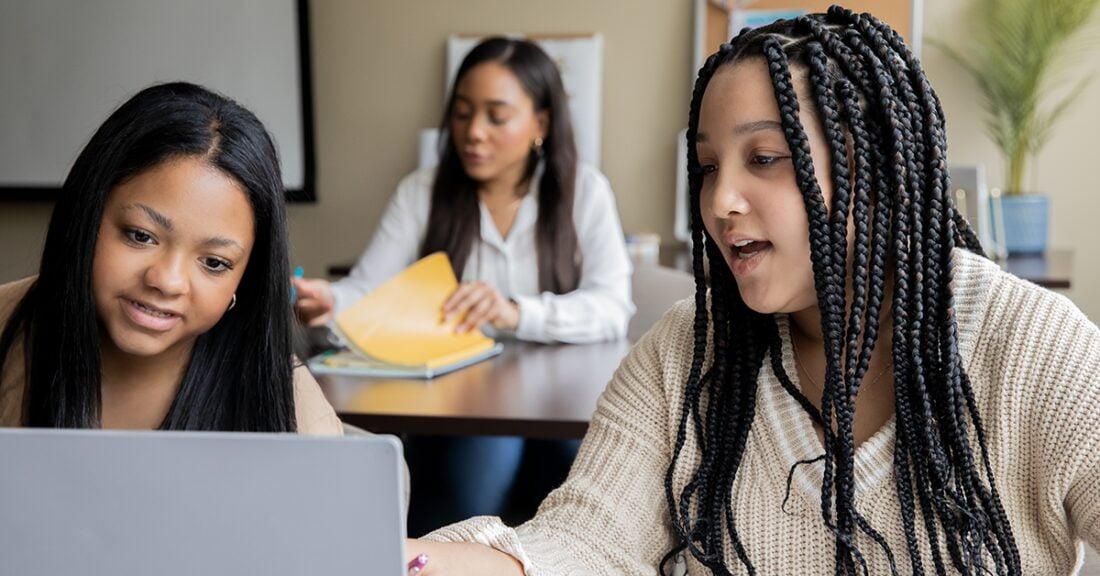Support Is Essential for Students of Color in Atlanta

The Annie E. Casey Foundation’s 2024 Changing the Odds report highlights significant disparities in academic proficiency between Black students and their white peers in the city of Atlanta.
In 2023, we found that just 35% of third graders in Atlanta were proficient in reading. While 81% of white students were reading at a third-grade level, only 21% of Black children demonstrated that level of proficiency.
What about math? In the same year, 25% of Atlanta Public School students were proficient in mathematics by the end of eighth grade. Of that number, only 15% of Black students were proficient.
A major obstacle for students of color is that many are unable to access advanced coursework, such as advanced placement (AP) programs. What’s more, in Atlanta, even high-performing Black and Latino eighth graders are less likely to take advanced courses.
Read about the racial wealth gap in Atlanta
One potential strategy for overcoming this disconnect can be found in Texas: In 2019, the Dallas Independent School District (ISD) has transitioned from an opt-in model for advanced placement to an opt-out model.
During that school year, all students who scored well on Texas state literacy, math or science assessments were automatically enrolled in the related advanced coursework, resulting in a significant increase in Black and Latino students enrolled in AP courses. This change removed many requirements that previously held students back, such as teacher recommendations and parent approvals.
In the Dallas ISD, overall enrollment in eighth grade Algebra 1 jumped from 20% to 60% after the new policy was implemented. When applied to high school AP courses, the number of AP test takers grew, and AP scores rose.
While access to educational opportunities is crucial, it’s just one aspect of a larger issue. To help students succeed in the classroom, they also need access to holistic supports that include mental health services. We know that students in the U.S. experience loneliness and depression. Suicide is the third-leading cause of death among young people ages 14 to 18 years old, according to the Centers for Disease Control and Prevention, and students who are struggling outside of the classroom will naturally struggle inside the classroom.
Read about Atlanta’s cost-burdened households
To speak from my own life, both of my Black children were enrolled in multiple AP courses at Midtown High School here in Atlanta. While they were prepared for the content of these classes, they weren’t ready for the isolation they experienced. When my son was not engaged in the course or encouraged by his teacher, it showed in his grades. Although my son and daughter are thriving adults today, these experiences placed them at a disadvantage when it came time to apply for college.
Ensuring that Atlanta’s schools offer the best education to every student is a complex problem without simple solutions. It will require the Foundation’s partners to rethink areas like teacher training, student preparation and budgeting. But, working together, we can reduce academic disparities to ensure all students have what they need to forge bright futures.
Rubye Sullivan is a senior associate with the Casey Foundation’s Atlanta Civic Site.




 Rubye K. Sullivan, Ph.D.
Rubye K. Sullivan, Ph.D.


